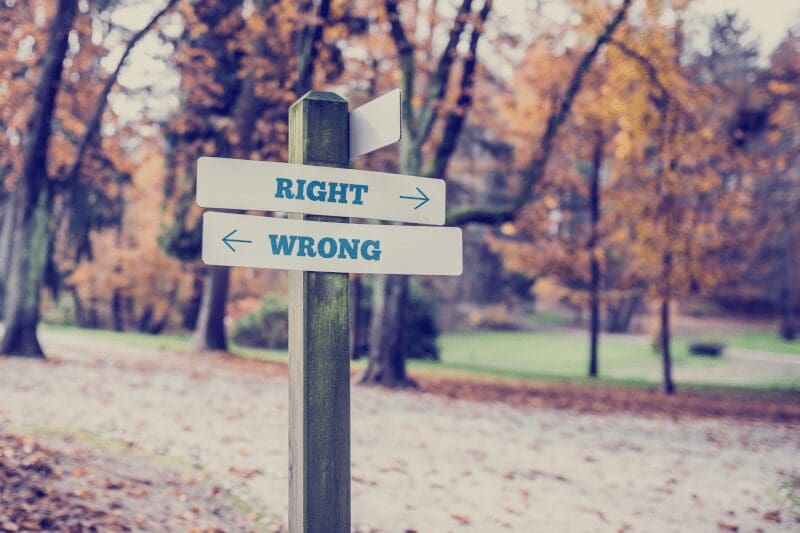Do you ever look back on your life and wonder just how you got where you are? What choices did you make that might have gone a different way? Which moments in your life were pivot points? When were you lucky (or unlucky), and when did conscious effort on your part carry the day?
The Development of a Substance Use Disorder
These sorts of questions are only natural. Most everyone wonders about the moments in their lives where things went right or wrong—or the moments when something seemed to be good but turned out to be bad (or vice versa).
When it comes to the development of a substance use disorder, a look in the rearview mirror tends to reveal five distinct steps. Let’s take a look at those steps starting at the end and working our way toward the beginning.
Step Five: An Undeniable Substance Use Disorder
This is the point at which you simply cannot deny that you have a problem with drugs or alcohol. Maybe you have reached what might be described as “rock bottom,” but even if you haven’t, the consequences of substance use are catching up with you. Maybe you are having trouble at work, your health is compromised, or your relationships are strained. These are just a few of the problems a substance use disorder can cause—and you have arrived here as a result of the previous step.
Step Four: A Dependence on Drugs or Alcohol
Once you have reached a point of dependence, you may feel as though you have fallen into a trap. On the one hand, you are well aware that drugs or alcohol are having a negative impact on your life. On the other hand, any effort you make to stop using the substance in question leads to terrible withdrawal symptoms. That means that things seem equally bad whether you continue to use drugs or try to quit using them. This is the very definition of being stuck between a rock and a hard place—and this dependence follows on the heels of the previous step.
Step Three: An Increased Tolerance for Drugs or Alcohol
When you first start using drugs or alcohol, you may feel the effects of the substance fairly quickly. You get your buzz after a drink or two. A single dose of a club drug might carry you through the night. But as you continue to use the substance, your brain and body will develop a tolerance—meaning you will need to take more and more of the drug to achieve the same feelings you once achieved with far less. At this point, things are markedly worse than they have been—though the previous step is no picnic either.
Step Two: A Period of Ongoing Regular Use
This stage is fairly subtle at first. If the substance in question is alcohol, maybe you started out just having drinks with the gang after work on Fridays. Next thing you know, you are headed to the bar a couple of nights a week—and then every night (with or without your coworkers). Maybe you start spending the better part of your weekends there, too. This progression can take place over a long period of time, meaning it might not occur to you right away that anything has really changed. Of course, before you can become a regular user of drugs or alcohol, there is another essential step—the one that gets the whole process started.
Step One: A First Use Leading to Pattern Creation
You can’t develop a substance use disorder if you never use any substances. That first use might be a celebratory drink when you turn 21. It might be a medication prescribed by a physician. It might be an illicit drug you try on a lark. And maybe it turns out to be no big deal. You become a social drinker with no ill effects. You use your medication exactly as prescribed. You decide the illegal drug is not for you. But maybe things go wrong and you find yourself drinking too much or deviating from your doctor’s instructions or enjoying the sensation you get from the drug you were just going to try once. Now you have taken the first step that can take you all the way down the road to a substance use disorder.
The Right Step for Getting Help? The One You Are On.
Reading that list of steps might naturally lead to a question: How far along the path to step five can you go before you should get help?
Our answer: The right time to get help is right now, no matter which step you are currently on. Obviously, you can have that first drink without immediately checking yourself into treatment. But as soon as you notice a pattern developing or you find yourself using a substance regularly, it is time to consider making a change. And that change may be best made with the help of a robust detox and rehab program.
French Creek Will Help You Get Sober Step By Step
If you are struggling with drugs or alcohol, we can help. At French Creek Recovery Center, we offer evidence-based, compassionate care that is personalized for your specific needs. Via medically supervised detox services and a rehab program that includes both individual and group therapy, we can help you reclaim your sobriety and develop the skills and strategies you need to maintain it. We can also help you address any co-occurring mental health disorders—an essential process because sobriety and mental health are intertwined.
If you are on the path toward a substance use disorder (or have already arrived at that destination), we can help you get on a new, better path—and we can help you take the first steps of your recovery journey with confidence.

